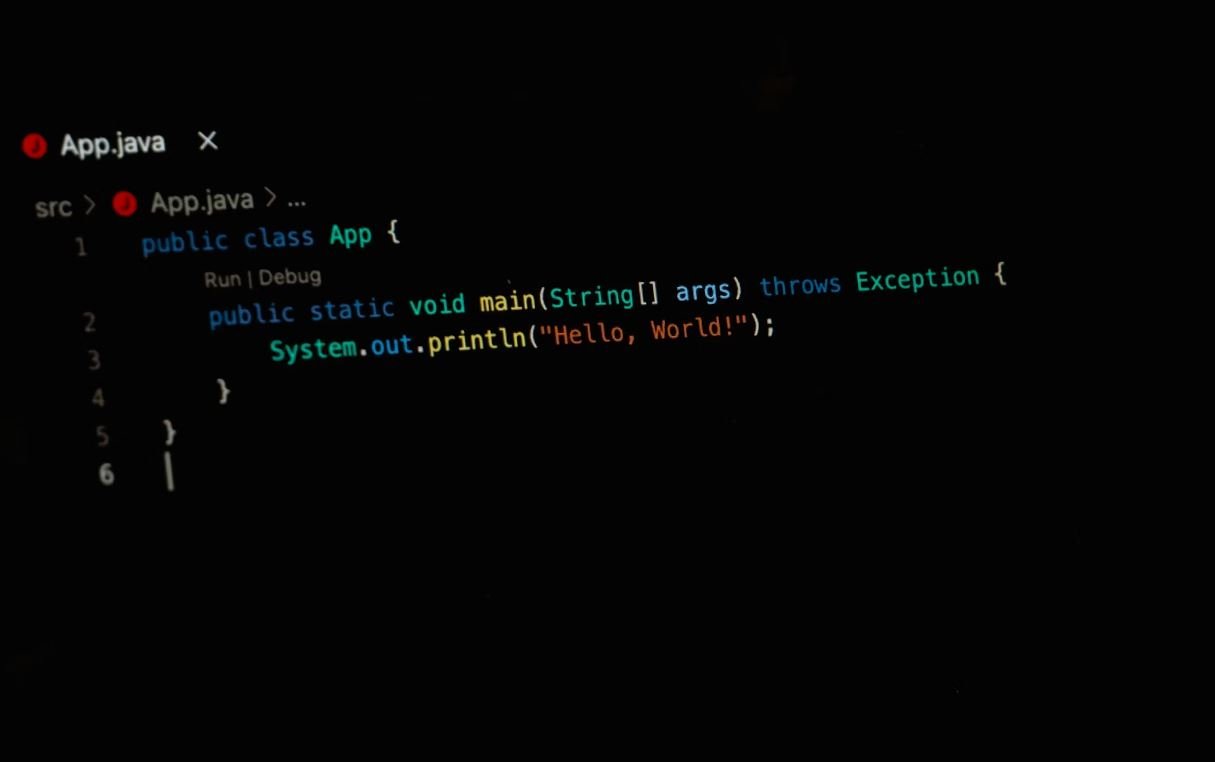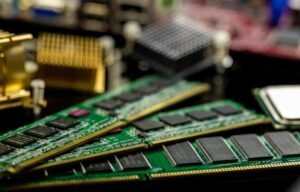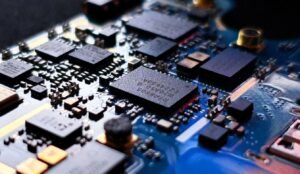AI Applications in Manufacturing
Artificial Intelligence (AI) is revolutionizing the manufacturing industry by improving efficiency, reducing costs, and increasing productivity. This technology allows machines to simulate human intelligence and perform tasks that require human-like decision-making abilities. From predictive maintenance to quality control, AI is transforming the way manufacturing processes operate.
Key Takeaways:
- AI in manufacturing improves efficiency and productivity.
- Predictive maintenance uses AI to prevent equipment failures.
- Quality control benefits from AI-powered image recognition.
AI brings numerous benefits to the manufacturing industry. By implementing AI technologies, companies can optimize their operations and streamline their production processes. Predictive maintenance is one area where AI has made a significant impact. **Using machine learning algorithms**, AI systems can analyze real-time sensor data to predict equipment failures, enabling proactive maintenance and reducing costly downtime.
*AI-powered image recognition* has revolutionized quality control in manufacturing. By analyzing images and identifying defects or anomalies, AI algorithms can significantly enhance the inspection process. This not only saves time but also ensures consistent and reliable quality assurance, ultimately leading to higher customer satisfaction.
AI Applications in Manufacturing
1. Predictive Maintenance
With AI, manufacturers can implement predictive maintenance strategies, reducing unplanned downtime and optimizing maintenance schedules. By leveraging historical data and machine learning algorithms, AI can forecast equipment failure and alert operators to perform maintenance tasks before breakdowns occur. This proactive approach minimizes production losses and extends equipment lifespan.
2. Quality Control and Defect Detection
One of the most promising applications of AI in manufacturing is quality control. AI systems equipped with **advanced image recognition** capabilities can quickly and accurately identify defects or anomalies in products. By analyzing images from cameras and sensors, AI algorithms can detect imperfections that may be missed by human inspectors. This ensures that only high-quality products reach the market, avoiding costly recalls and reputation damage.
3. Supply Chain Optimization
AI technologies can also optimize the supply chain in manufacturing. By analyzing historical data, AI systems can predict demand fluctuations, enabling more accurate inventory management and reducing the risk of stockouts or excess inventory. AI can also improve supplier selection, predicting delivery timeframes, and evaluating supplier performance to ensure timely and reliable deliveries.
Data Points: AI Impact in Manufacturing
| Benefit | Statistic |
|---|---|
| Productivity Improvement | +25% productivity improvement by 2025 (McKinsey) |
| Defect Reduction | -50% defect rate using AI-powered quality control systems (IBM) |
| Cost Savings | +30% reduction in maintenance costs through predictive maintenance (Deloitte) |
AI applications in manufacturing are continuously evolving, driving new advancements and opportunities for the industry. As AI technologies become more sophisticated and accessible, manufacturers must embrace these innovations to remain competitive and unlock new growth potentials.
Conclusion
The integration of AI in manufacturing brings immense potential for process optimization, productivity improvement, and cost reduction. From predictive maintenance to quality control and supply chain optimization, the benefits are vast and significant. Embracing AI technologies can help manufacturers stay at the forefront of innovation and thrive in an increasingly competitive global marketplace.

Common Misconceptions
Understanding AI Applications in Manufacturing
There are several common misconceptions surrounding the topic of AI applications in manufacturing that often lead to confusion or misunderstandings. It is important to dispel these misconceptions in order to have a clear understanding of the capabilities and limitations of AI technology in this industry.
Bullet Points:
- AI application in manufacturing is not limited to large-scale companies only
- AI technology is not meant to replace human workers entirely, but rather to assist and collaborate with them
- AI systems require extensive training and continuous improvement to reach peak performance
AI Will Take Over Human Jobs
One common misconception is the fear that AI applications in manufacturing will result in mass job losses. However, the reality is that AI technology is designed to assist human workers, not replace them. AI systems can automate tasks that are repetitive, mundane, or dangerous, allowing human workers to focus on more complex and creative tasks that require higher cognitive abilities.
Bullet Points:
- AI applications free workers from repetitive tasks, increasing productivity
- AI can augment human capabilities, leading to improved efficiency and quality
- AI can create new jobs related to its development, maintenance, and oversight
AI Does Not Require Human Supervision
Another misconception is the idea that AI systems can operate autonomously without any human supervision. While AI technology has advanced significantly, it still requires human intervention and oversight. AI systems need human input for training, calibration, and decision-making. Human supervision is essential to ensure that AI systems operate within desired parameters and make accurate decisions.
Bullet Points:
- Human supervision is necessary to train AI models and ensure data integrity
- Regular monitoring is needed to identify and rectify biases or errors in AI algorithms
- Human intervention is crucial for complex decision-making and handling exceptions
AI Is Inflexible and Cannot Adapt to Changing Manufacturing Needs
Some believe that AI systems are inflexible and cannot adapt to evolving manufacturing needs. However, AI technology is designed to be dynamic and adaptive. AI models can be continuously trained and improved to accommodate changes in manufacturing processes, customer demands, and market trends. With proper training and data, AI can quickly adjust to new requirements and optimize manufacturing operations accordingly.
Bullet Points:
- AI models can be reconfigured and retrained to adapt to changing needs
- Machine learning algorithms enable AI systems to learn from new data and experiences
- AI technology can help manufacturers respond faster to market changes and customer preferences
AI in Manufacturing Is Expensive and Inaccessible
Contrary to popular belief, AI applications in manufacturing are becoming more accessible and affordable for businesses of all sizes. The cost of AI technologies has significantly reduced in recent years, making them more feasible for small and medium-sized manufacturers. Moreover, various AI toolkits and frameworks are available, making it easier for organizations to experiment and implement AI solutions tailored to their specific needs and budgets.
Bullet Points:
- Advancements have reduced the cost of AI hardware and software
- Cloud-based AI platforms offer cost-effective solutions for manufacturers
- Open-source AI frameworks enable customization and reduce development costs

AI Applications in Manufacturing
Artificial Intelligence (AI) has revolutionized various industries and brought significant advancements in manufacturing processes. This article examines ten intriguing examples of how AI is being applied in the manufacturing sector, showcasing its impact on productivity, efficiency, and overall innovation.
Enhancing Quality Control
AI systems integrated with computer vision technology are being used to inspect products on assembly lines, ensuring the highest quality standards are met. This significantly reduces human error and increases the accuracy and efficiency of quality control processes.
| AI Application | Benefits |
|---|---|
| Automated Defect Detection | Identifies defects with greater accuracy than human inspectors, minimizing production errors |
| Real-time Quality Monitoring | Constantly monitors production processes, detecting anomalies and reducing potential downtime |
Optimizing Supply Chain Management
AI algorithms and predictive analytics are employed to optimize supply chain operations, helping manufacturers streamline inventory management, demand forecasting, and logistics planning.
| AI Application | Benefits |
|---|---|
| Automated Demand Forecasting | Accurately predicts customer demand, reducing excess inventory and avoiding stockouts |
| Intelligent Route Optimization | Determines the most efficient delivery routes, minimizing transportation costs and reducing carbon footprint |
Smart Maintenance and Predictive Analytics
AI-based predictive maintenance systems analyze equipment data in real-time, enabling manufacturers to proactively identify potential failures, schedule maintenance, and optimize equipment performance.
| AI Application | Benefits |
|---|---|
| Condition Monitoring | Constantly monitors machine performance, detecting abnormalities and preventing costly breakdowns |
| Predictive Maintenance | Anticipates equipment failure, enabling timely maintenance and reducing unscheduled downtime |
Intelligent Robotics and Automation
AI-powered robots and automation systems are increasingly used in manufacturing facilities to perform complex tasks with precision and efficiency, freeing up human employees for more strategic roles.
| AI Application | Benefits |
|---|---|
| Cobots (Collaborative Robots) | Work alongside humans, increasing production efficiency and ensuring worker safety |
| Automated Guided Vehicles (AGVs) | Transport materials within factories autonomously, reducing manual labor requirements |
Improving Product Design and Customization
AI tools aid in designing products tailored to individual customer preferences, allowing manufacturers to offer customization options and optimize product development processes.
| AI Application | Benefits |
|---|---|
| Generative Design | Automatically generates optimized product designs based on specified constraints and requirements |
| Mass Customization | Enables efficient production of customized products at scale, meeting diverse customer demands |
Securing Cyber-Physical Systems
AI-driven cybersecurity solutions protect manufacturing systems from potential threats, ensuring the integrity, availability, and confidentiality of critical infrastructure.
| AI Application | Benefits |
|---|---|
| Real-time Intrusion Detection | Detects and prevents cyber intrusions, safeguarding sensitive data and intellectual property |
| Behavioral Analytics | Analyzes system behavior to identify anomalous activities indicative of cyber threats |
Enhancing Worker Safety
AI-based safety systems assist in monitoring worker activities and identifying potential hazards to improve workplace safety in manufacturing environments.
| AI Application | Benefits |
|---|---|
| Real-time Risk Assessment | Monitors workers’ activities and identifies potential safety risks to prevent accidents |
| Automated Hazard Detection | Detects hazards such as spills, leaks, or equipment malfunctions and alerts workers in real-time |
Increasing Energy Efficiency
AI-powered energy management systems optimize energy usage and identify opportunities for energy conservation, reducing manufacturing’s environmental footprint.
| AI Application | Benefits |
|---|---|
| Smart Energy Monitoring | Collects real-time energy data, identifies energy-consuming areas, and suggests energy-saving actions |
| Optimized Energy Demand Response | Intelligently manages peak energy demand, minimizing energy costs and improving grid reliability |
Streamlining Production Planning
AI systems help optimize production planning processes, enabling manufacturers to align production capacities, reduce lead times, and improve overall operational efficiency.
| AI Application | Benefits |
|---|---|
| Production Capacity Forecasting | Predicts production capacities based on historical data, ensuring optimal resource allocation |
| Real-time Production Monitoring | Tracks production progress, identifies bottlenecks, and enables timely adjustments to meet deadlines |
Conclusion
The integration of AI technology in manufacturing has ushered in a new era of efficiency, quality, and innovation. From optimizing supply chains and enhancing product design to improving worker safety and energy efficiency, AI applications in manufacturing prove to be highly influential across various areas. As manufacturers continue to embrace AI-driven solutions, the industry’s potential for growth and advancements becomes even more promising.
Frequently Asked Questions
What are some common applications of AI in manufacturing?
Common applications of AI in manufacturing include predictive maintenance, process optimization, quality control, supply chain management, autonomous robots, and computer vision systems.
How does AI help with predictive maintenance in manufacturing?
AI enables predictive maintenance in manufacturing by using advanced algorithms to analyze real-time and historical data from machines and equipment. This helps in detecting and predicting potential failures, allowing for proactive maintenance to prevent costly breakdowns.
What is process optimization in manufacturing?
Process optimization in manufacturing involves using AI algorithms to analyze data and optimize various aspects of the production process, such as reducing waste, improving efficiency, and enhancing overall productivity.
How can AI improve quality control in manufacturing?
AI can improve quality control in manufacturing by utilizing machine learning algorithms to analyze data from sensors and cameras to detect defects and anomalies in real-time. This helps in reducing defective products and improving overall product quality.
What role does AI play in supply chain management in manufacturing?
AI plays a crucial role in supply chain management in manufacturing by enabling better demand forecasting, inventory optimization, and enhanced logistics planning. This helps in minimizing costs, reducing inventory holding, and improving overall supply chain efficiency.
How are autonomous robots used in manufacturing?
Autonomous robots are used in manufacturing for various tasks such as material handling, assembly, packaging, and inspection. These robots can operate independently using AI algorithms, reducing human intervention and increasing production efficiency.
What is computer vision in manufacturing?
Computer vision in manufacturing refers to the use of AI and image processing techniques to analyze visual data from cameras and sensors. It enables machines to perceive and understand their surroundings, allowing for tasks such as object recognition, defect detection, and quality inspection.
How does AI impact job roles in manufacturing?
AI has the potential to impact job roles in manufacturing by automating repetitive tasks and augmenting human workers with AI-powered tools and systems. While some job roles may be replaced, new opportunities for AI-related skills and roles may also emerge.
What are the challenges of implementing AI in manufacturing?
Challenges of implementing AI in manufacturing include the need for high-quality and diverse data, integration with existing systems and processes, ensuring data security and privacy, and addressing ethical concerns. Additionally, there may be resistance to change and the need for upskilling the workforce.
What are the potential benefits of AI in manufacturing?
Potential benefits of AI in manufacturing include increased productivity, improved product quality, reduced costs, enhanced safety, better supply chain management, and faster time to market. AI can also enable companies to gain competitive advantages and explore new business models.





